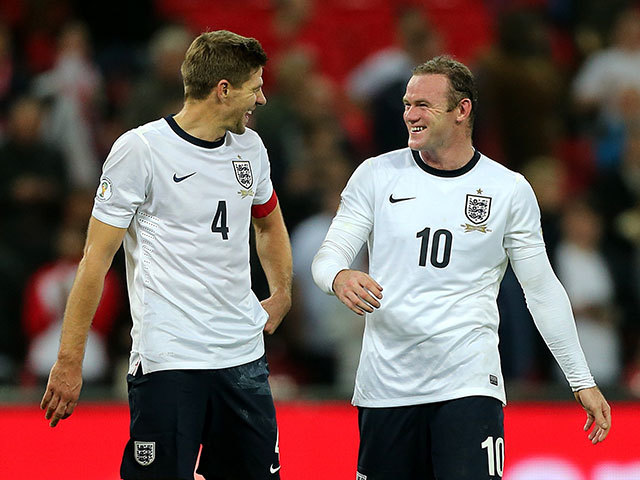
Television screens would stay on despite a record power surge predicted in the unlikely event Steven Gerrard lifts the World Cup this summer, Ed Davey said.
The Energy Secretary says he has been assured by National Grid that the UK has enough electricity generating capacity to meet what might be the highest domestic energy surge ever if the England team made it to the final of the football World Cup in Brazil.
But he will also tell the Economist’s UK Energy 2014 conference that measures are needed to avoid a short-term energy crunch over the next couple of years.
In a speech to the conference Davey will say that while people may think the chances of England reaching the final and winning are unlikely or even “unimaginable”, National Grid is planning for the possibility to prevent mass blackouts during the crunch game.
Events like the World Cup cause spikes in electricity demand, particularly if they coincide with the evening peak, when people are at home, cooking dinner and using appliances such as washing machines and kettles.
A World Cup final with England in it could outstrip royal weddings and overhaul the record for a domestic energy surge of any kind, Mr Davey will say.
That record was set during the 1999 solar eclipse, which saw an increase in demand equivalent to 1.3 million kettles turned on at the same time.
He will tell the conference: “National Grid’s extensive historical data confirms that the further the England team progress in a world cup tournament, the higher the surges.
“If England were to reach the World Cup Final, Grid’s data suggests it’s possible we could see the highest domestic electricity demand surge ever.
“Now you’ve got the picture: can you imagine what would happen if, at a crunch moment, perhaps when England are beating Brazil three nil, and our brave boys trot off for half-time, there was a mass blackout?
“The peak of all peaks, ever, arrives, and our electricity system falls over.”
The Energy Secretary says he has spoken to National Grid about England winning the World Cup.
“And I can report that National Grid have assured me that the UK has enough electricity generating capacity ready to meet any World Cup spike – through the group stages and beyond to history,” he will tell delegates.
“So if Stevie Gerrard lifts the World Cup, Britain’s lights – and televisions – will stay on.”
But he will warn that the UK faces a short term energy crunch if nothing is done to ensure the country has enough electricity capacity over the next couple of years before new generation comes on line.
Energy regulator Ofgem’s assessment last year warned that the capacity margin – how much the UK’s total generating capacity outstrips the expected peak demand – could fall from 6% to a low of between 5% and 2% in 2015/2016, before increasing.
Ed Davey will say that there is an improved picture for 2014/2015 compared to last year’s expectations, but the outlook for 2015/2016 still requires one of the significant new interventions the Government has been planning for.
New balancing measures would put in supply reserves from power stations that would otherwise be closed or mothballed, while more large energy users could be paid to reduce the power they take from the grid in peak times.
He will emphasise the balancing measures were “entirely voluntary”.
“Nobody will get cut off. No economic activity will be curtailed.
“Both the new demand and supply balancing services will be used only as a last resort – and are a safety net to protect households in difficult circumstances, such as a hard winter or very high surges in demand,” he will tell the conference.
Recommended for you
